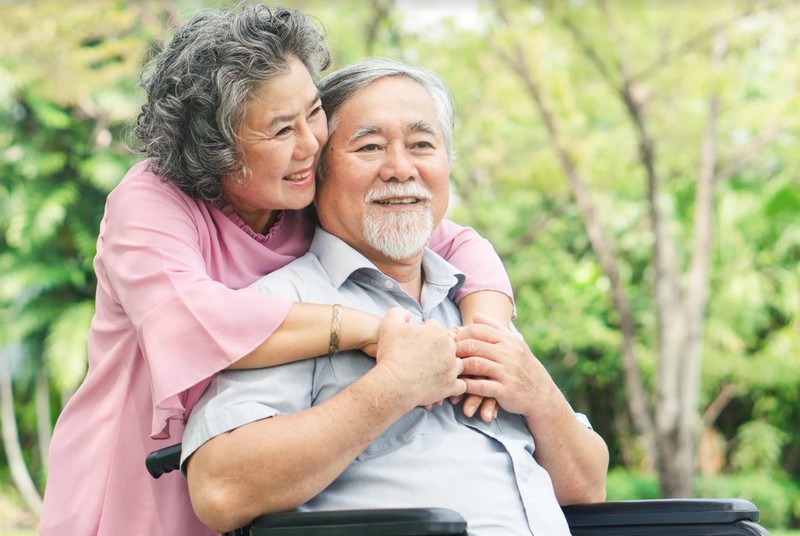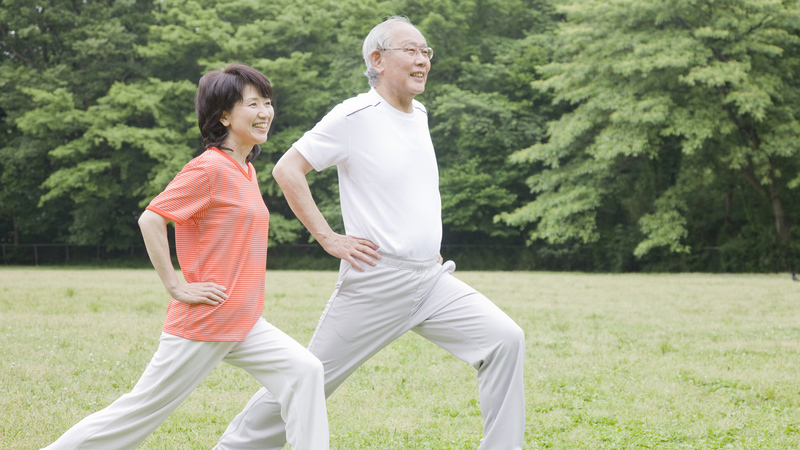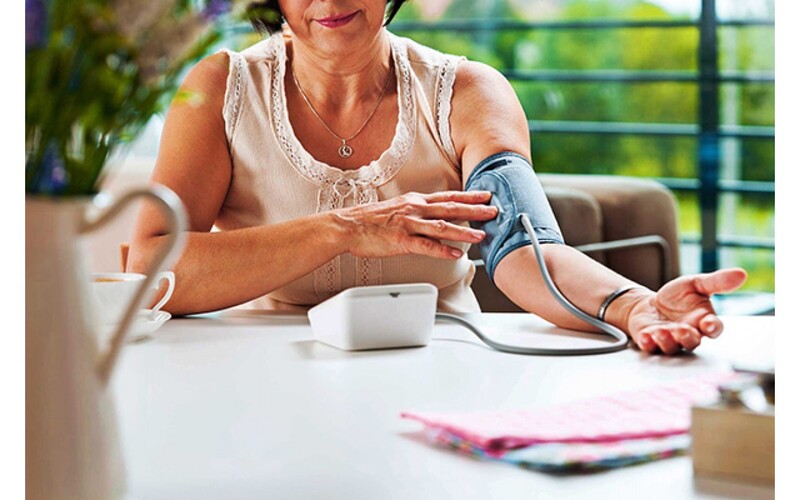12 December 2020
How to treat high blood pressure in the elderly effectively
Elderly people often have high blood pressure and complications are more serious than young people. According to experts, high blood pressure is a silent killer of the health of the elderly. Patients themselves and their families need to know how to treat high blood pressure in the elderly and prevent them to improve their health and improve the quality of life.
Nội dung
1. How to treat high blood pressure in the elderly is with lifestyle changes
High blood pressure in the elderly often does not have any obvious symptoms at the onset, it is only until complications of heart attack, stroke, kidney failure, … the patient feels uncomfortable symptoms.

Elderly people are susceptible to high blood pressure
If the disease is detected early, the elderly can completely stabilize blood pressure control and prevent complications, starting with lifestyle changes.
The following habits will help the elderly reduce blood pressure:
1.1. Maintain a consistent body weight
High blood pressure has many causes, including overweight and obesity. BMI is an index that assesses your current weight is more suitable and gives you the optimal weight for you to aim for. If you are having problems of being overweight or obese, consult your doctor for safe weight loss guidelines.
1.2. Daily exercise
The elderly may not be suitable for quick exercises like young people, so aim for gentle exercises such as walking, short jogging, yoga, nursing, … plays an important role in promoting health and preventing high blood pressure in the elderly.

Older people also need daily exercise to improve their health
1.3. A nutritious diet
Should develop a separate diet for the elderly with high blood pressure with a variety of nutrients from lean meat, fish, vegetables, fruits, good fats, cereals, milk, … Fresh, healthier foods than processed foods high in salt cause high blood pressure.
A healthy, nutritious diet can also assist with weight maintenance and good health. One of the diets formulated for older patients with high blood pressure is DASH, you can consult.
1.4. Salt control
This is an important principle that the elderly in general and people with high blood pressure in particular need to care about and implement. There are 2 ways to limit salt intake in your daily meals:
Gradually reduce the amount of salt used in cooking, it may be difficult to eat at first, but with time you will get used to.
1.5. Quit smoking
People with smoking habits have a higher risk of high blood pressure and related complications, especially in the elderly when the heart is not as flexible as before. If you smoke, stop this bad habit.
1.6. Guaranteed sleep
Elderly people often have problems with sleep quality, often wake up in the middle of the night, have difficulty falling asleep, sleep or be startled, … These are all unhealthy, especially easy to make. blood pressure is higher.
To ensure the quality of sleep, should limit the use of alcohol and caffeine before bed, creating a quiet, cool and comfortable sleeping space. Certain sedative, easy-to-sleep teas can assist with your sleep disturbance.
1.7. Limit alcohol
Alcohol is the cause of many dangerous diseases, when overusing them, people with high blood pressure often get worse disease progression, and the risk of complications is higher.
2. Treatment of high blood pressure in the elderly with drugs
Often, the elderly have severe high blood pressure and do not respond to lifestyle changes, drugs should be combined. Here are some of the commonly prescribed medications for high blood pressure:
2.1. Diuretic
Diuretics work to increase the body’s fluid elimination, so some electrolytes are also better removed from the body. As a result, high blood pressure improves, but diuretics are not usually indicated alone in the treatment of hypertension in the elderly.

To treat high blood pressure, it is necessary to use drugs as prescribed by a doctor
2.2. ACE inhibitors
This drug supplies the angiotensin-converting enzyme, which blocks the action of the hormone that narrows the blood vessels. Elderly people with high blood pressure often have problems with narrow blood vessels, atherosclerosis, stiffness that make it difficult for blood to flow, ACE inhibitors ensure easier blood circulation. As a result, blood pressure drops.
2.3. Beta blockers
Beta blockers affect the heart, causing the heart to pump less blood through the capillaries, lowering heart rate and lowering blood pressure.
2.4. Vasodilators
Vasodilators work to dilate blood vessels, suitable for patients with stenosis of blood vessels that make blood less circulating.
Treatment of high blood pressure in the elderly requires a combination of drugs and regular blood pressure monitoring to ensure it is stable within the ideal range. Some medicines can have side effects, so follow your doctor’s instructions and respond when you encounter any abnormalities.
In addition, the elderly should have personal blood pressure monitor at home to better control blood pressure. Especially in cases of irregularity, blood pressure results help in more proper emergency management. However, monitoring your blood pressure at home is not a substitute for visiting your doctor, a medical professional will assist you in managing and treating your high blood pressure. Early signs of high blood pressure complications can also be detected and prevented.

Người cao tuổi nên có máy đo huyết áp tại nhà
(Source: medlatec)
Danh mục
Tin nổi bật
20 April 2021
07 April 2021












